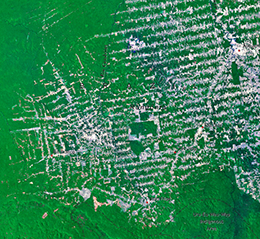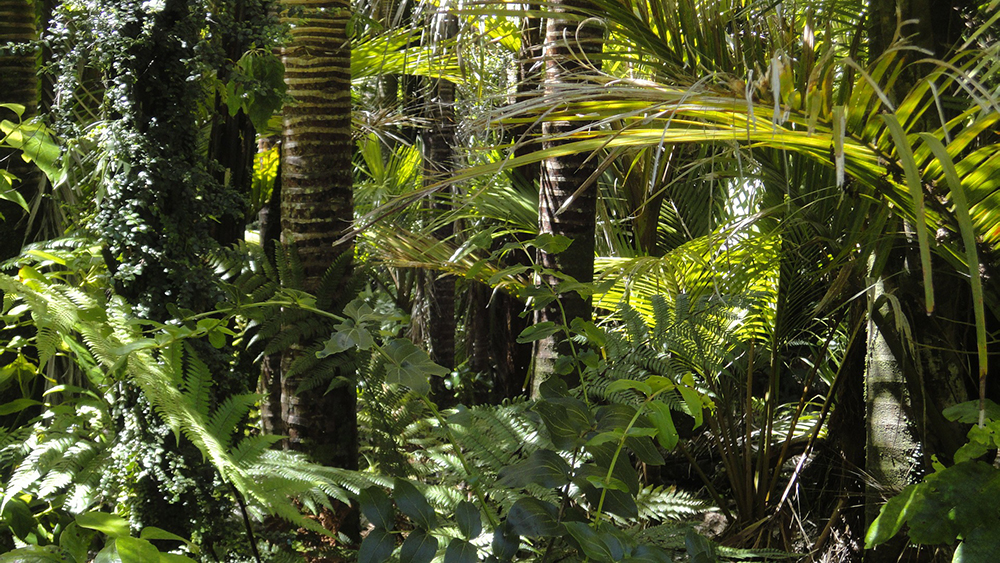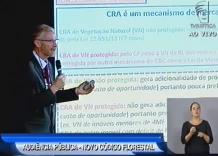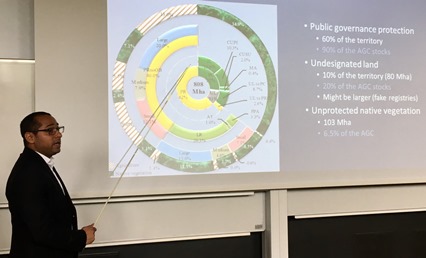Bioenergy options in Brazil
Bioenergy options in Brazil – environmental impacts of land use change.
Project leader: Ulla Mörtberg
Participants: Flavio L. M. Freitas, Ulla Mörtberg
Project period: 2015 – 2019
Funding: Brazilian National Council of Scientific and Technologic Development - CNPQ (Project ID: 249404/2013-3)
Key words: Agricultural expansion, land use governance, bioenergy, planted forest, native vegetation, environmental impacts
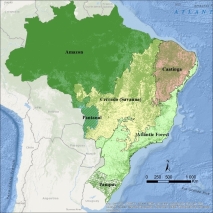
Project description
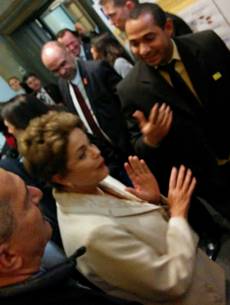
Brazil holds a large share of the world’s remaining natural forests, about one-third of the existing rainforest and most of the Amazon rainforest. Currently, approximately two-third of the Brazilian territory is covered with natural vegetation. Over the coming years, due to population growth, economic development, diet shift, and increased demand for biomass-based energy, the ongoing agriculture expansion and intensification, taking place in Brazil, is expected to continue and intensify. Such an expansion will most certainly contribute to developing remote regions of Brazil, creating business opportunities and generating new jobs in rural areas. However, this development is expected to have various impacts on these rural areas, with various repercussions in the form of environmental and socioeconomic impacts. Agricultural expansion over native vegetation may threaten valuable ecosystem services in various ways, such as losses of natural habitats and biodiversity, changes in the carbon dioxide exchange between biosphere and atmosphere and changes in water quantity and quality. Therefore, in order to understand the land use changes as well as the complexity of its environmental and socio-economic impacts, it is crucial to elaborate, test and validate robust land use change models, which can produce strategic information to support decision making.
Aim
This research project aims primarily at enriching the knowledge related to land use changes caused by agriculture expansion for bioenergy production. Here, we employ a Land Use Governance Assessment (LUGA) Model and scenarios analysis to investigate future outcome of land use policy development in Brazil in terms of ecosystem services development. Furthermore, in the scope of this research project, modeling methodologies will be developed and adapted to assess environmental and socio-economic effects of land use policies in Brazil. The results can potentially support the adoption of more sustainable pathways of agriculture expansion and guide the strategies to mitigate negative environmental and socio-economic impacts, while enhancing the gains from this development.
Cooperation
The project is implemented in close cooperation with the Agriculture College of the University of São Paulo (ESALQ/USP), with Prof. Gerd Sparovek, and Chalmers University of Technology, Energy and Environment Department (the Physical Resource Theory Division) with Prof. Göran Berndes
Publications
| Freitas, F., 2019, Brazilian public protection regulations and the preservation of ecosystem services and biodiversity . PhD thesis, TRITA-ABE-DLT: 1920, KTH Royal Institute of Technology, Stockholm. |
| Freitas, F.L.M., Sparovek, G., Berndes, G., Persson, M., Englund, O., Barretto, A., Mörtberg, U., 2018. Potential increase of legal deforestation in Brazilian Amazon after Forest Act revision . Oral presentation at the 1st dialogue meeting on the future of the Brazilian Amazon - Potential implications of the new political landscape in Brazil, 5 December 2018 in Gothenburg, Sweden. |
| Freitas, F.L.M., Sparovek, G., Berndes, G., Persson, M., Englund, O., Barretto, A., Mörtberg, U., 2018. Potential increase of legal deforestation in Brazilian Amazon after Forest Act revision . Nature Sustainability 1: 665–670. |
| Freitas, F.L.M., Englund, O., Sparovek, G., Berndes, G., Guidotti, V., Pinto, L.F.G., Mörtberg, U., 2018. Legal protection over the Brazilian carbon stocks , Oral presentation at the 1st Latin American Conference on Sustainable Development of Energy, Water and Environment Systems (SDEWES), 28-31 January 2018, Rio de Janeiro, Brazil. |
| Freitas, F.L.M., Englund, O., Sparovek, G., Berndes, G., Guidotti, V., Mörtberg, U., 2017. Who owns the Brazilian carbon? Global Change Biology 24: 2129-2142. |
| Freitas, F.L.M., Sparovek, G., Mörtberg, U., Silveira, S., Klug, I., Berndes, G., 2017. Offsetting legal deficits of native vegetation among Brazilian landholders: Effects on nature protection and socioeconomic development . Land Use Policy 68: 189-199. |
| Freitas, F.L.M., Guidotti, V., Sparovek, G., 2017. Technical note: Land tenure map of Brazil . Piracicaba, Brazil, www.imaflora.org/atlasagropecuario . |
| Freitas, F.L.M. 2017. Brazilian land use policies and the development of ecosystem services . Licentiate thesis in Land and Water Resources Engineering, KTH Architecture and the Built Environment, Stockholm, TRITA-LWR LIC 2017:01, 39 pp. |
| Freitas, F.L.M., Sparovek, G. and Hiromiti Matsumoto, M. 2016. A Adicionalidade do Mecanismo de Compensação de Reserva Legal da Lei no 12.651/2012 : uma análise da oferta e demanda de cotas de reserva ambiental. Chapter 5 in: Moreira da Silva, A.P., Rodrigues Marques, H. and Sambuichi, R.H.R. (eds.). Mudanças no código florestal brasileiro: desafios para a implementação da nova lei. Rio de Janeiro: IPEA: 125-158 [in Portugese]. |
| Freitas, F.L.M., Mörtberg, U. and Sparovek, G. 2015. Additionality oft he compensation mechanism oft he Brazilian Forest Code . Poster presented at the Visit of the President of Brazil Dilma Rousseff, 19 October 2015, KTH Royal Institute of Technology, Stockholm. |
| Freitas, F.L.M., Mörtberg, U. and Sparovek, G. 2015. Towards integrated sustainability assessment of forest bioenergy options in Brazil . Poster presented at the KTH Energy Dialogue, 26 November 2015, KTH Royal Institute of Technology, Stockholm. |

